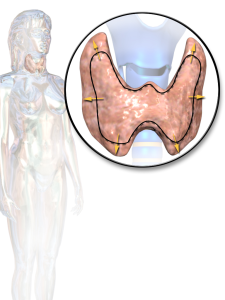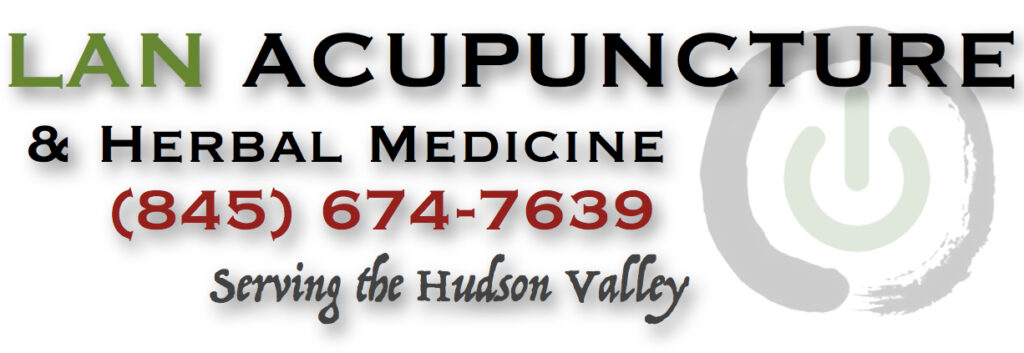[retweet][facebook]
 Acupuncture improves leukocyte counts in patients suffering from hyperthyroidism combined with leukopenia. Hyperthyroidism is a disorder wherein the thyroid gland, located in the anterior aspect of the neck, produces excessive quantities of thyroid hormone. Lower Abdomen AcupunctureThis may lead to a variety of symptoms including anxiety, tremors, fatigue, weight loss, rapid heart beat, sweating, and insomnia. Hyperthyroidism may cause leukopenia, which is a pathological decrease in the white blood cell (WBC) count. Several types of medications may also cause leukopenia. Research published in the Clinical Journal of Chinese Medicine demonstrates that acupuncture successfully increases leukocytes for patients with hyperthyroidism combined with leukopenia.
Acupuncture improves leukocyte counts in patients suffering from hyperthyroidism combined with leukopenia. Hyperthyroidism is a disorder wherein the thyroid gland, located in the anterior aspect of the neck, produces excessive quantities of thyroid hormone. Lower Abdomen AcupunctureThis may lead to a variety of symptoms including anxiety, tremors, fatigue, weight loss, rapid heart beat, sweating, and insomnia. Hyperthyroidism may cause leukopenia, which is a pathological decrease in the white blood cell (WBC) count. Several types of medications may also cause leukopenia. Research published in the Clinical Journal of Chinese Medicine demonstrates that acupuncture successfully increases leukocytes for patients with hyperthyroidism combined with leukopenia.
The experiments compared two groups. The integrative medicine group received both acupuncture and a pharmaceutical medication. The biomedical group received the identical medication but did not receive acupuncture. A total of 42 patients were randomly and evenly divided into the two groups. The combined numbers included 24 male and 18 female patients with an average age of 34 years.
Inclusion criteria specified three primary requirements. All patients must have hyperthyroidism combined with leukopenia, no signs or symptoms of infection, and must be between 18 and 70 years of age. Patients were excluded from this study using the following criteria:
- Use of antimalarial drugs, chemotherapy, antibacterials, anti-inflammatories, etc….
- Pregnant or lactating
- Severe mental disturbance diagnoses
- Allergic to the drug Leucogen
- Patients taking part in other clinical experiments
Treatment
All patients in both groups took 40 mg Leucogen tablets at a rate of 3 times per day. Patients in the integrative medicine group received acupuncture in addition to the medication regimen. Acupuncture was applied once per day for 4 weeks with a needle retention time of 30 minutes per session. The primary acupuncture points used in the study included:
- Ge Shu (BL17)
- Pi Shu (BL20)
- San Yin Jiao (SP6)
- Guan Yuan (CV4)
- Qi Hai (CV6)
- Zu San Li (ST36)
- Xue Hai (SP10)
The total efficacy rate was based on a combination of full efficacy and notable efficacy. Full efficacy involved the complete restoration of leukocyte counts to normal with concomitant improvement of clinical symptoms at a 4 week check-up. Notable efficacy documented specific and significant increases in leukocytes concomitant with improvements in clinical symptoms.
The integrative medicine group receiving both acupuncture and Leucogen achieved a total efficacy rate of 90.48%. The biomedical group receiving only Leucogen achieved a total efficacy rate of 76.19%. A total of 21 patients in the integrative medicine group had a full recovery and 14 patients in the biomedical group had a full recovery.
The researchers note that Traditional Chinese Medicine (TCM) theory categorizes hyperthyroidism with leukopenia as blood, qi, and jing related disorders. Internal organs in the Zang-Fu system commonly associated with this disorder are the heart, liver, spleen, and kidney. A general principle in TCM is to benefit the qi and blood and to balance yin and yang.
The researchers note that the acupuncture point selection was based on the TCM principles concerning this condition. Acupoints ST36, CV6, and SP6 were selected for their nourishing properties. ST36 and CV6 are noted for benefiting overall qi and SP6 is noted in TCM for its ability to nourish the spleen and kidney. SP10 was chosen for its ability to treat blood related disorders. The researchers elucidated the theoretical basis for all points in the acupuncture point prescription protocol.
The tone of the research is geared towards maximizing positive patient outcomes rather than promoting a particular methodology. The integrative medicine approach outperformed the drug only approach. As a result, the researchers note that combining acupuncture with Leucogen provides significantly better clinical results than receiving Leucogen as a standalone procedure.
Excerpt from:
